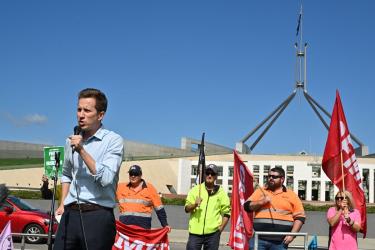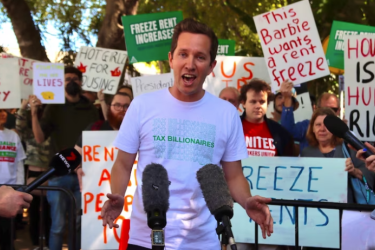Max Chandler-Mather reflects on the Brisbane Greens community-based strategies, along with broader issues such as Palestine and last year’s referendum on an Indigenous Voice to Parliament.
Australian Greens
Max Chandler-Mather talks about the various ways they have sought to reach out, engage in a dialogue with, and organise people around the housing crisis and more broadly.
Max Chandler-Mather reflects on his experiences in parliament so far as an “outsider”, the strengths and weaknesses of the housing campaign and the challenges involved in pushing for anti-establishment politics from within parliament.
NSW Greens MP David Shoebridge addresses the Socialist Alliance national conference in January 2012. Photo: Peter Boyle
By Peter Boyle
February 4, 2012 -- Green Left Weekly -- Rupert Murdoch's flagship newspaper, The Australian, has been on a campaign to destroy the Australian Greens because the party represents a big electoral break from the two-parties-for-capitalism system that has dominated Australian politics for more than a century. In the past two weeks, this campaign has been hyped into McCarthyite Cold War hysteria.


